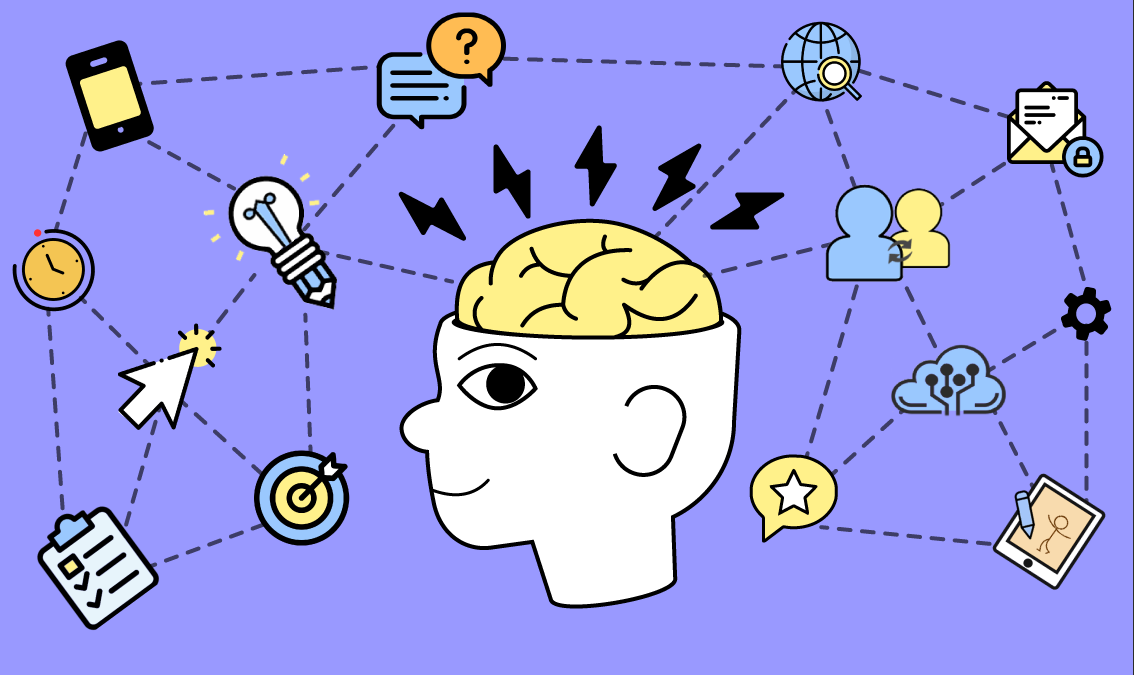Human-Centered Design for Work at a Distance
Gain a toolkit of visual maps based on design processes used by the digital media, game, arts, medical, and emerging technology sectors. And reflect, adapt and prototype actionable solutions to solve a variety of remote work challenges.
What you will learn
- Gain a foundational understanding of human-centered design concepts and strategies.
- Use visual models such as personas and user experience journeys to help generate and prototype tangible.
- Apply human-centered design tools and frameworks to solve a variety of distributed work challenges and other ‘wicked’ problems.
- Identify, reflect and apply lessons learned from others to transform your own work-at-home situation.
- The World Economic Forum has ranked problem solving, critical thinking and creativity .
- Design methodology is in high demand: according to Rutgers research using Burning Glass Labour Market Data, between 2016 and 2018.
- Human-centered design skills are particularly valuable in a climate of disruption. Design methodology can help solve complex human problems spanning multiple industries, such as the challenges of working at a distance.
Program Overview
Build your first app
⏱️ 8-12 weeks
In this part you will learn the tools, techniques and concepts needed to build a basic iOS app, from scratch. You will be introduced to the Swift programming language and learn how to utilise the Apple developer tools to build an app.
- Understand and use the Swift programming language;
- Use and explain the Apple developer tools: including Xcode, Interface Builder, Documentation Browser;
- Confidently converse with iOS developers, understanding the basics of coding and App development;
- Design, develop and build your own simple iOS Apps.
Work with augmented reality (AR) and the web
⏱️ 12-15 weeks
In this part you will learn how to build AR apps with Xcode and look at the different ways to integrate web content into your iOS apps.
- Use ARKit to create augmented reality scenes and objects for your apps
- Test and debug your AR app
- Connect to web services to fetch or send info to and from your app
Project: Create an iOS app from start to finish
⏱️ 15-20 weeks
In this part you will work on your very own project where you will go through the process of designing and prototyping your very own app.
- Incorporate effective design principles (and Human Interface Guidelines) into yourapp
- Utilisebrainstorming, planning, prototyping and testing into yourapp concept
- Testand evaluateyourapp with an audienceto gainfeedback
- Explainthe steps involved in getting an app onto the App Store
Get certificate
Many of us have had to face a new reality of working at a distance, requiring us to take new approaches to how we work, and adapt the products and services our organizations offer. As distributed work continues to rise in popularity, there are already signs that these changes may lead to a “new normal”. Facebook, Twitter and Shopify are among several companies who are moving the majority of their workforces online, permanently.
Working remotely has many benefits, including increased employee productivity and satisfaction. Yet, it is not without its challenges: many individuals and organizations struggle to effectively adapt their businesses and interactions with others online.
Human-centered design (HCD) principles are used by successful companies worldwide to transform thinking and inspire innovation. This professional certificate program teaches you how to apply HCD strategies to reinvent your work reality, and support others who are doing the same.
Each module includes inspiring video conversations with guest speakers from a range of industries, including physiotherapy, game design, ecommerce, health and communications, and more. Uncover how these people have transformed their work from a distance, and apply strategies and best practices gleaned from these case studies to reimagine your own work at a distance.
Gain a toolkit of visual maps based on design processes used by the digital media, game, arts, medical, and emerging technology sectors. And reflect, adapt and prototype actionable solutions to solve a variety of remote work challenges.
This professional certificate program is taught by UBC Professor Patrick Pennefather, a strategic design expert who has taught human-centered design and scalable MVP’s (minimum viable prototypes) strategies to a range of institutions, nonprofits and corporations over the past 15 years.
Job Outlook
- The World Economic Forum has ranked problem solving, critical thinking and creativity – the fundamental elements of human-centered design – as the top three skills employees will need to thrive in the workplaces of the future (World Economic Forum, 2016).
- Design methodology is in high demand: according to Rutgers research using Burning Glass Labour Market Data, between 2016 and 2018 there was a 200% increase in jobs requiring design thinking skills (compared to a 6% increase in all positions).
- Human-centered design skills are particularly valuable in a climate of disruption. Design methodology can help solve complex human problems spanning multiple industries, such as the challenges of working at a distance.
- Distributed work is on the rise, and has been even prior to COVID-19. Gallup data showed 43% of U.S employees worked remotely in some capacity in 2017, a 4% rise from 2012.
- According to a 2020 Gartner survey, 74% of CFOs plan to shift at least 5% of their previously on-site employees to ongoing remote positions, even after COVID-19 has subsided.
- Distributed work has many benefits, including a lack of commute and more time. A 2020 Gitlab survey found that 52% of respondents found themselves to be “more productive” when working remotely.
1 review for Human-Centered Design for Work at a Distance
Add a review

Original price was: $318.00.$286.20Current price is: $286.20.




supervendor –
I started to earn money after this course